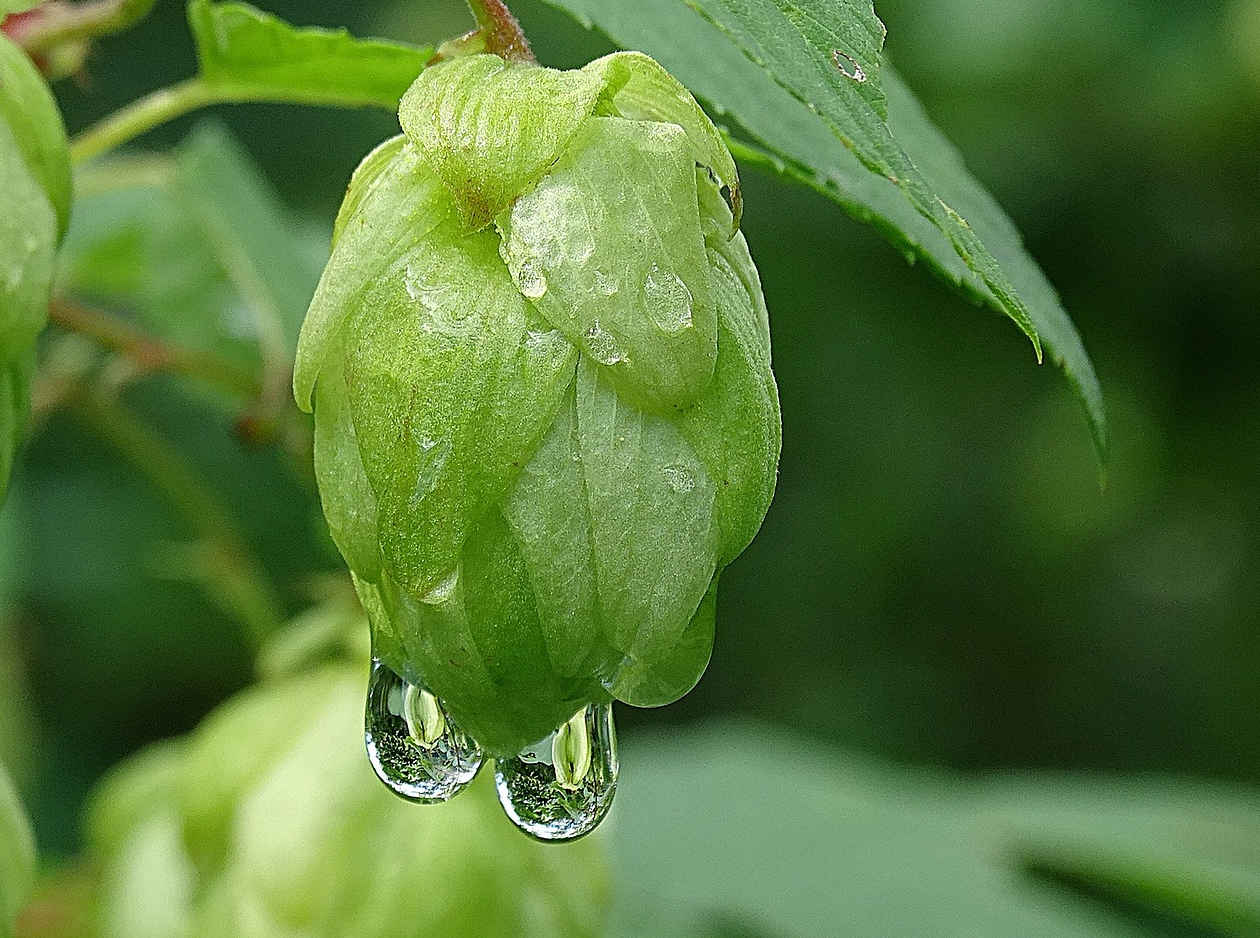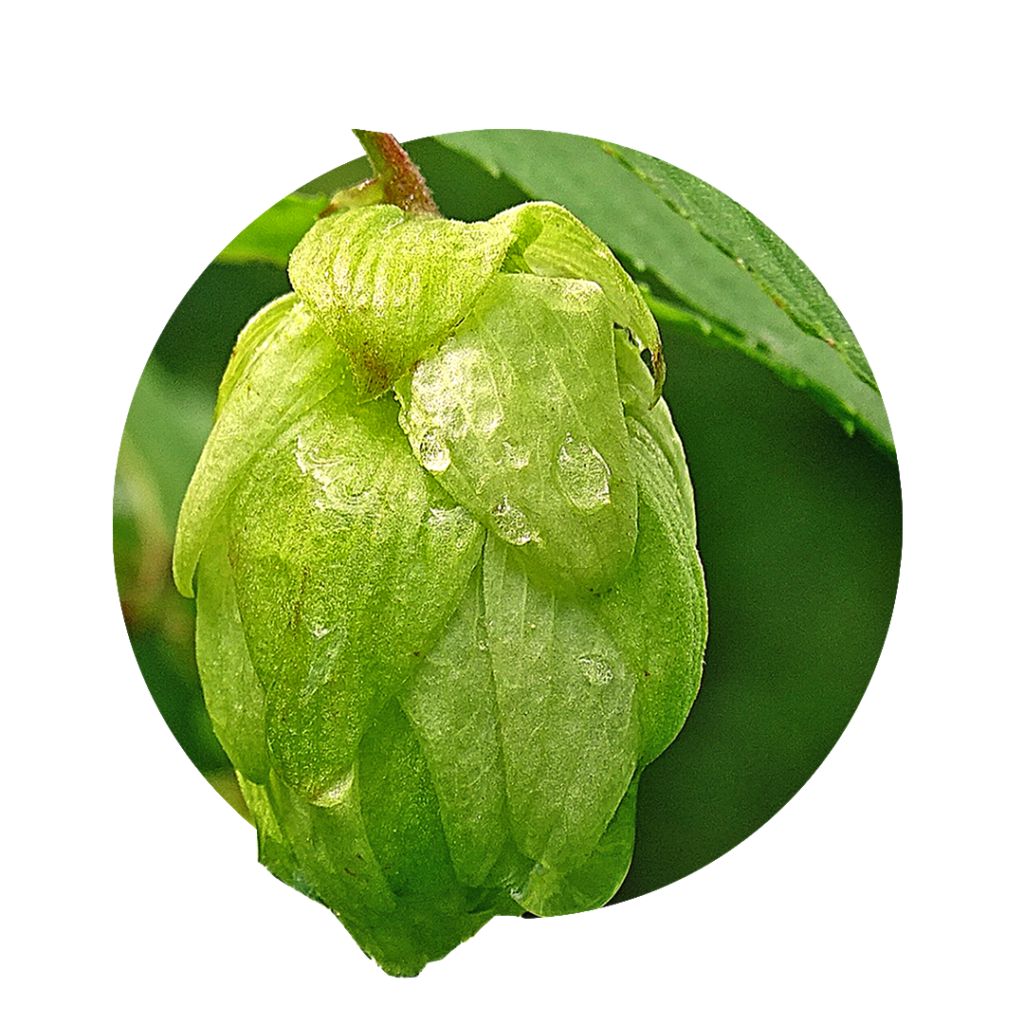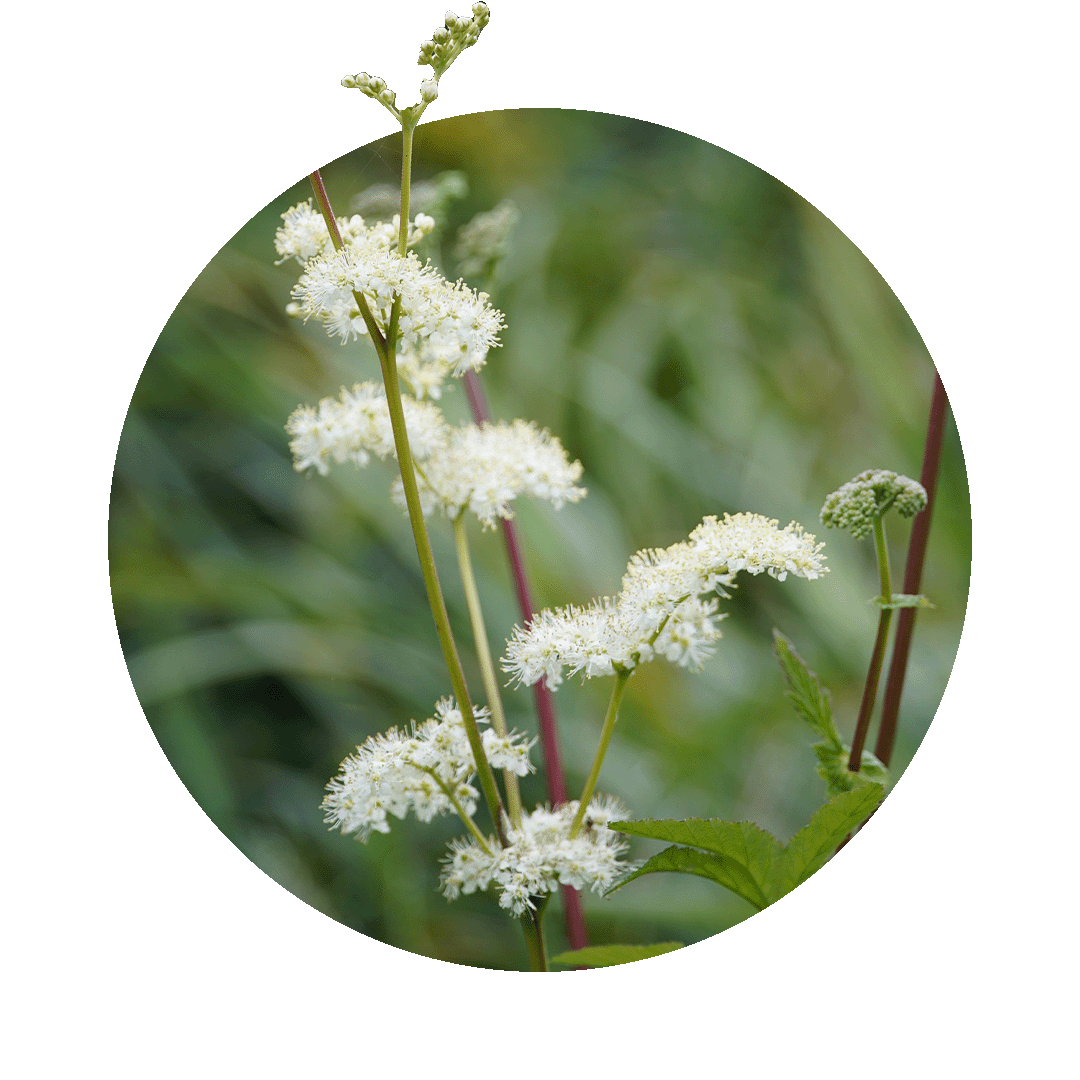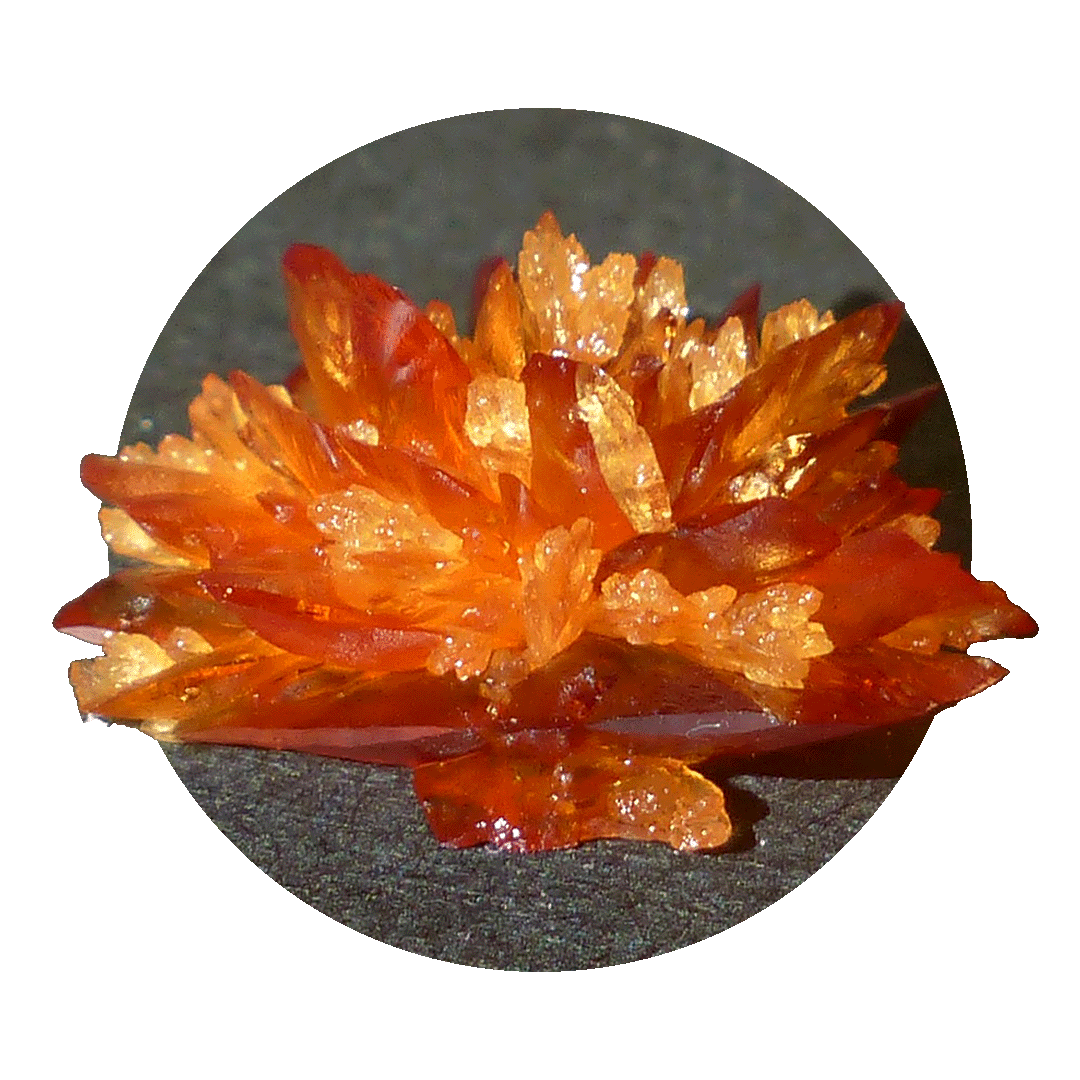Hops: From sleeping pill to cultivated plant
Hops are certainly the number one cultivated plant in our latitudes. The plant became famous when it was discovered as a component of beer in the medieval monasteries. It is believed that the reason was its preservative effect. Due to its admixture, the beer simply lasted longer and remained fresh. And mankind has been interested in beer for thousands of years, it is the oldest cultural drink in the world!
Facts about hops
Did you know that...
... hops replaced other intoxicating plants such as belladonna and henbane as an ingredient in beer?
... hops belong to the hemp family and are therefore related to cannabis? (the smell gives it away)
...the Hallertau in Bavaria is the largest, coherent hop-growing region in the world?
...hop shoots are considered a delicacy? But these are largely eaten by the hop farmers themselves.
What is hops?
Hops is a climbing plant from the hemp family. It grows up to 6m high and grows vertically on climbing aids. In winter the above-ground part of the plant dies and in spring the new plant sprouts from the rootstock. When we speak of hops, we mean the hop cones, i.e. the flowers. They have an unmistakable aromatic smell, very reminiscent of cannabis. This is where the relationship between the two plants becomes apparent. As a native plant, hops have been cultivated and used for a long time. Especially as an additive to beers, plants have always been common. The fact that hops also became a beer plant is due to its disinfecting effect. For many centuries, people drank only thin beers and diluted spiced wines on a daily basis. The reason for this was that it was difficult to get clean drinking water. The danger of catching a potentially fatal infection from spiced grape wine, fruit wine, honey wine or hopped thin beer was simply lower.
General and healing properties of hops
The basic knowledge
Sleep-inducing
Hops are sleep-inducing. Hops tea is still used today to bring restless people to rest. Other plants with similar effects, such as lemon balm or valerian, are often added to this tea. In the past, this mixture was often combined with a little laudanum, an opium derivative, for particularly restless children. Whether the tea would still have been needed is questionable, but today this is of course no longer used.
contains plant estrogens
The statement that beer makes a fat belly is true. Since hops contain plant estrogens, they have a feminizing effect in the human organism. The male, heavy beer drinker therefore notices that his belly and chest grow and his body hair changes.
Soothing
Like all hemp plants, hops also have a calming effect. Responsible for this is the essential hop oil and also the hop resin that is formed in the cones. The resin has a similar effect to the body's own melatonin and also docks onto the same receptors in the brain. Its smell is already reminiscent of its relative hemp, its effect is very similar to this, even if the sleep promotion is in the foreground. Sensitive people can therefore become tired even during a long walk through a hop field.
Aphrodisiac
Many people are so tense that they can't even think about the most beautiful thing in the world. A beer helps one or the other with his little problem. However, a cup of hop tea would also do the trick. The aphrodisiac effect is not due to the alcohol in the beer, on the contrary, alcohol does not help with this problem, but to the hops. It calms so much that the relaxation nervous system, the parasympathetic nervous system can take control and thus ignite the desire!
Hops: Ingredients
Used from the hops are the female hop cones, which contain some volatile active ingredients. It is therefore useful to use the hops quite fresh.
You can find the following ingredients in hops:
- Humulones (α-hop bitter acids; bitter; volatile) are contained in the resin.
- The resin contains lupulones (β-hop bitter acids; not bitter; volatile).
- Storage produces 2-methyl-3-buten-2-ol with sedative properties
- Essential oils with sesquiterpenes such as humulene and myrcene (determine the beer aroma)
- Hopeine (estrogenic)
Hops: effect for body and mind
Anyone who has been to the Munich Oktoberfest or any other beer festival knows the effect of hops. It makes you feel cozy, sociable and content. Hops relaxes, calms and thus makes people more receptive to a good mood. From the point of view of herbal medicine, any unrest that occurs at beer festivals can be attributed to alcohol, but hops are not to blame. Its basic character is calm, relaxed nature and in these issues should be thought of him.
Hops reduces the effects of stress and makes you tired. It directly intervenes in the brain in the metabolism of the sleep hormone melatonin and adjusts the brain to night. Stress patients with disorders of libido can therefore benefit from the hop effect.
Due to the fact that hops contain some very bitter substances, it has a proven effect on digestion. It stimulates the flow of bile and pancreatic secretions, which improves digestion and bowel movements. In addition, it stimulates the production of gastric acid. This is used especially in old people and they are recommended to drink a little beer every now and then for appetite. Especially patients with anacidic, chronic gastritis can stimulate their stomach positively with hops. Stress patients, on the other hand, also often have stomach problems, but more likely with too much stomach acid. They have reflux, stomach cramps and heartburn. Due to the fact that hops calm the nervous system and counteract stress, you can think of using hops preparations for these patients as well. The easiest way is to make a fresh cup of tea.
Humulus lupulus: plant estrogens as therapeutic agents
Due to its plant estrogens, hops is also suitable as a therapeutic agent for menopausal symptoms such as sleep disorders, hot flashes and depressive moods. But also in the case of estrogen deficiency in the context of post-pill syndrome, it is a possible choice you can think about. Hops is often combined with lady's mantle and black cohosh in the form of drops or tea preparations.
Due to its diuretic and diuretic properties from the hops, beer used to be popular to drink during Lent. It has calories from the grain and the kidney flushing properties of hops. But beware for gout and rheumatism patients! Beer contains so-called purines, which are responsible for gout attacks. Straight one in combination with strongly purin-containing pork leads gladly to acute Gichtschüben. In Bavaria and the Alpine region, this is a recurring problem, because the combination is very tasty and widespread.
Properties hops
- Sleep-inducing
- Estrogenizing
- Soothing
- Draining
- Aphrodisiac
- Stomach soothing
Fields of application in naturopathy
[Humulus lupulus]
In the following you will find more detailed information about the application areas of hops. These differ quite a lot from each other. The reason is its colorful mixture of different active ingredients.
Hops as a sedative
Hops is a versatile plant. However, its effect on human melatonin levels is outstanding. To make the most of hops' potential as a sedative, you can take it orally, but also use it as an aromatherapeutic. It would be perfect if the hops were quite fresh and could be hung up in an airy place where they could ripen. This is how it unfolds its best effect. Internally, it can be taken as a tea or coated tablets.
Hops for sleep problems
Hops is one of the great sleep aids of herbal medicine. Due to the fact that it acts directly in the central nervous system by increasing the level of melatonin (sleep hormone), it also works reliably. Just the last few years, the medicinal treatment of sleep disorders with melatonin has become widespread. Our hops are the perfect alternative to synthetic drugs in this case. A proven alternative to direct ingestion as a tea or as a component of phytotherapeutic preparations is to simply place the fresh hops in the room as a scented bowl. In the past, people used to make whole bundles of fresh hops and simply hang them in the room or directly above the bed.

Hops for digestive problems
Many people have a tendency to constipation because the active digestive glands liver/bile and pancreas simply do not do their job optimally and are somewhat sluggish. Stress in particular also has a fatal effect here because it inhibits and reduces the activity of the digestive glands. Clearly, a person on the run needs to run, not digest. The consequences can be heavy bowel movements and constipation.
Hops now have a relaxing and stress-reducing effect on the one hand, but on the other hand, with their bitter substances, they also have a direct effect on the liver/bile and pancreas. Bitter substances stimulate all salivary glands in the body to produce their secretions. And it is precisely this secretion that contains the digestive enzymes and bile acids that we need so that food can be metabolized well.
Hops for stomach problems
The stomach complaints are often related to the other digestive problems in the context of tension and stress. A stressed person initially produces a lot of stomach acid and therefore sometimes suffers from reflux and heartburn. But a stomach can also become exhausted. After long years of too much stomach acid, it can also become weak and produce too little acid. This condition is no better. After all, as mixed food eaters, we need our strong stomach acid for digestion.
Hops helps doubly in this situation. On the one hand it reduces the physical stress level, on the other hand it stimulates the tired stomach to produce stomach acid again. Of course, in such situations one should not think of beer, but of tea or medicines. The alcohol of beer in both cases would be a burden for the stomach.
Hops for period discomfort
Estrogen deficiency can lead to a loss of libido and dry mucous membranes throughout the body. Mostly, however, patients come for period complaints such as spotting and intermenstrual bleeding with altered cycle length. Plants that have estrogenic effects are many. The most commonly used are soy, black cohosh, rhapontic rhubarb and hops. Again, mono or mixed preparations can be bought in pharmacies. However, a hop tea can already help you with slight problems. It is good if you have your hormone status determined in advance by a doctor or alternative practitioner by blood or better saliva examination. Then you have black on white where it haprt and can proceed specifically.
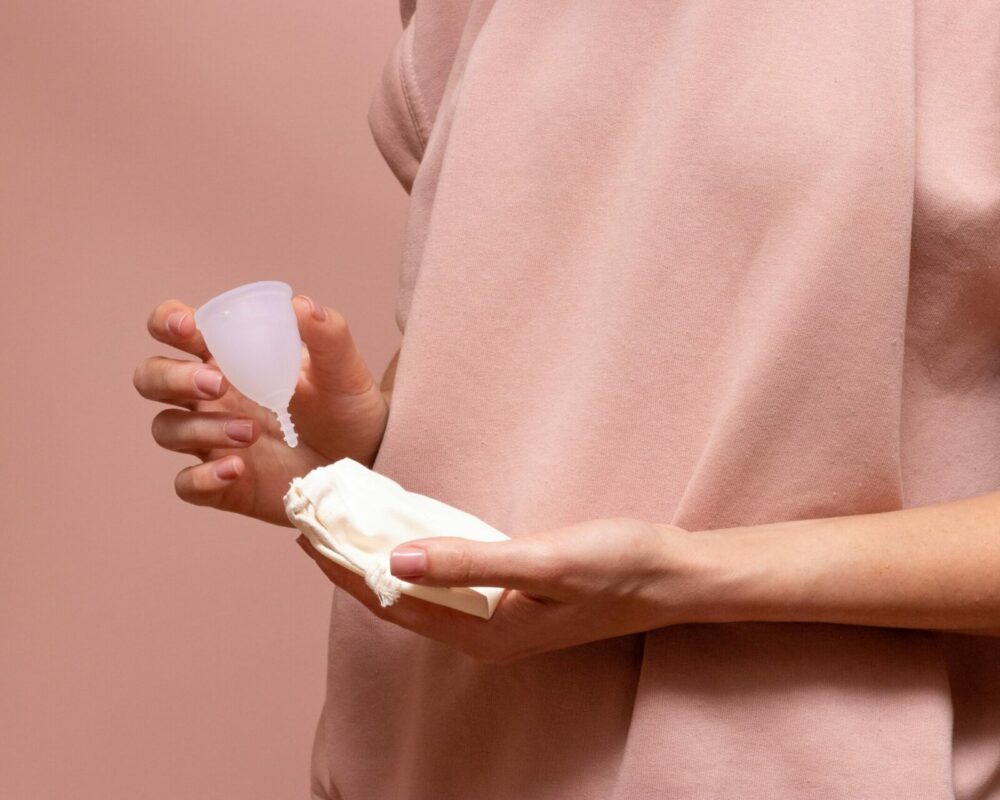
Notes on the use of hops
When it comes to sleep problems, it is advisable to take hops in the evening. Due to the fact that it has a sleep-promoting effect, taking it during the day is rather disturbing, because you get tired. Especially teas or strong tinctures are not an elegant solution here. In case of pronounced nervousness, you can also take naturopathic medicines containing hops during the day. They are available as complex remedies in tablet or drop form. Simply discuss this with your practitioner and also try out how you react individually.
When it comes to the effect on digestion, it is always advisable to take something orally. It is also advisable to take something with an explicitly bitter taste, such as strong tinctures, because the taste has a nervous feedback to your digestive glands. You notice this yourself, because a bitter taste immediately makes your mouth (and intestines) water.
When using hops as an estrogenic agent, it doesn't matter whether you take it before or after a meal. The important thing here is regularity, usually three times a day.
Hops during pregnancy and lactation
You can also use hops without hesitation during pregnancy and breastfeeding. Midwives regularly recommend it as a tea for sleep disorders. However, hops are also a good source of bitterness, stimulate digestion and calm the stomach, especially in the case of nausea during pregnancy. For restless babies, the bouquet of hops over the crib is a gentle aromatherapy.
Hops and alcohol
Please remember that hops can be taken in various forms. Even if there is nothing wrong with a beer now and then, it should not become the rule. Please watch your alcohol consumption, also and especially in stressful situations.

Get your hop complex now and use the healing power of Humulus Lupulus
Use the healing power of Humulus Lupulus and our other more than 100 medicinal plants for the natural relief of your complaints. Improve your well-being and support your body, your mind and your soul! Use our configurator to create your personal spagyric spray, which is tailored to your needs and accompanies you on your natural path to the improvement of body, mind and soul.

